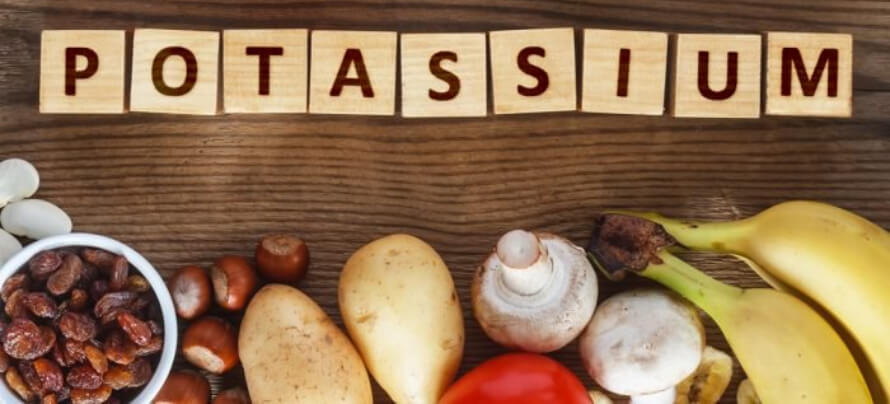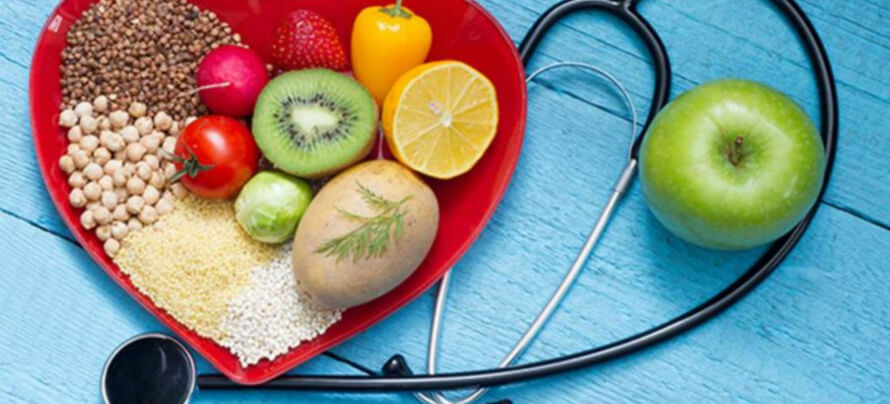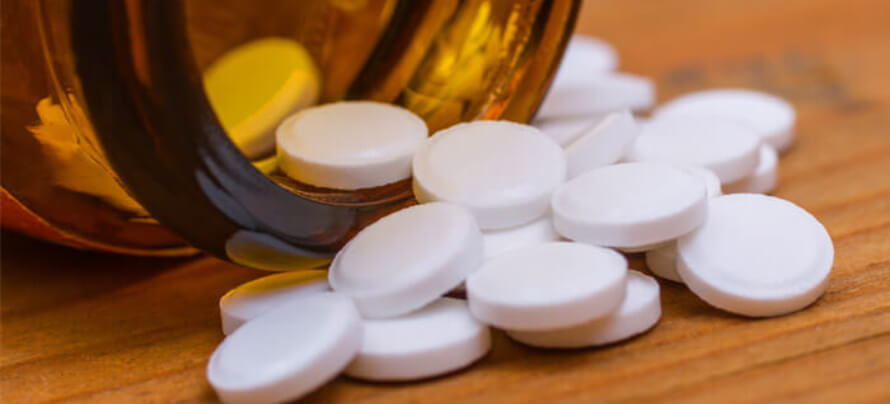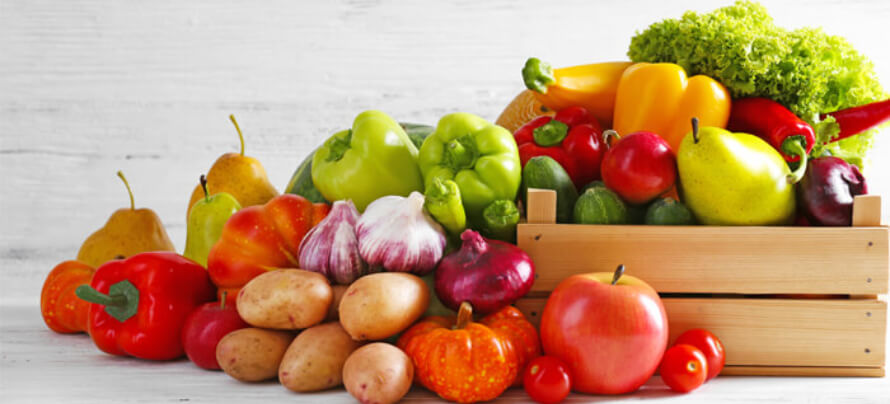Key Takeaways
- Potassium is the most common dietary insufficiency in the Western world. While eaten in amounts to prevent outright diseases of deficiency from occurring almost all of us don’t eat enough potassium.
- Increasing potassium intake is not only cardioprotective but protects heavily against any circulatory disorders including strokes. A higher intake is vital for optimal long-term health.
- Beans and vegetables remain the best sources of potassium you can get in the diet while moderate usage of a salt substitute may help you bridge the final gap.
Vitamin D made pretty big waves in the past.
I mean, it’s an essential vitamin and yet somehow damn near everybody was deficient? We get that claim a lot, but rarely is it based in truth.
Plus it actually resulted in many countries increasing the RDI values of Vitamin D, usually from 400 IU to 800 IU. I think this was the first time that the supplemental field was ahead of the ball and led to a change being made rather than scientists leading the charge.
And, of course, I think that at some point in the next decade we will see such a change with vitamin K. Maybe not increasing it to 1 mg a day K1 equivalents (an 11-fold increase, which is around the level it’s “vitamin-like actions” on the osteocalcin enzyme are maximized) but at least a bit more than what it is now.
However, what if I told you that neither of these were the most common deficiency? That the most common deficiency doesn’t even need the RDI values changed around?
People just look at it on the label and go “lol, not a problem” before ignoring it.
Well, yeah, that’s potassium.
Long thought by the lay masses to simply be dietitians grasping at straws trying to get people to eat their vegetables, and long known by dietitians to be important and dear god why won’t people eat their vegetables? Potassium is far too ignored.
It may be the most important of the 3 aforementioned essentials since, well, a lack of vitamin D doesn’t increase your chance of acute cardiovascular death.
Don’t want a heart attack? Read on.
- What Is Potassium?
- What Does Potassium Do in The Body?
- What Does Potassium Deficiency Do to the Body?
- How Can You Tell if You Have a Potassium Deficiency?
- Can I Just Take Potassium Supplements?
- The Best Ways to Get More Potassium
- The Bottom Line on Potassium Deficiency
Table of Contents
+What Is Potassium?

Potassium is an essential dietary mineral found in the vast majority, if not all, of plant-based products in our diets. It doesn’t have any one major source but with a varied diet it adds up pretty easily.
It’s commonly seen as the opposite of sodium with some truth to it since they do oppose and regulate each other. Too much of one harms the body and, in this situation, bringing in more of the other helps balance things out.
However, sodium is far too easy to consume in our daily diets while potassium is more difficult to get.
Very commonly, potassium is put into the “hero” role that saves the body from the harms of “sodium” just due to how our diets are these days.
Recommended Reading:
What Does Potassium Do in The Body?
Potassium is both an essential mineral and an electrolyte in the body. Like any other essential compound, potassium needs a specific target in the body that only it can activate—wouldn’t be much of an “essential” mineral if it didn’t have a niche role after all.
This tends to refer to the role of potassium in potassium channels, or K channels. The most widely present channels in the human body that help guide, direct, and control the fate of water and oxidation in the human body.
That is pretty much it to be honest, but it’s a pivotal role.
I mean, our bodies are mostly water after all. Even if the floor’s only role is to support the structure of the building you’re in… you kind of need that.
Recommended Reading:
What Does Potassium Deficiency Do to the Body?
For the purpose of this section I want to clearly differentiate between two different terms; potassium deficiency and potassium insufficiency.
Potassium deficiency refers to when you have so little potassium bad stuff happens. Potassium insufficiency refers to when you have enough potassium so you don’t get outright harms but, at the same time, you do not have optimal levels.
The vast majority of us, myself included actually, are potassium insufficient if the RDA values are anything to go by. However, since the body is very good at ensuring its own survival, very few of us would be outright deficient in potassium.
So, what happens to the body when we don’t get enough potassium?
Well, first and foremost, the body will adapt to preserve as much potassium in the body as possible. Human bodies are pretty amazing like that. The moment we have no potassium ions in our blood is the moment we die but we can probably go months without eating any potassium since the body can recycle it.
However, the adaptations that happen are not designed for long term health in mind. These adaptations are made with mere survival in mind. The shift of some body systems away from “optimal health” and towards “please don’t die” will reduce, compared to others, optimal health.
I say this since studies on the topic are almost always comparative. Not a typical study where the active group is compared to a control group but, rather, get a few hundred people together and compare the top 20% versus the bottom 20%; comparing quintiles.
When we compare the highest levels of potassium intake against the lowest levels of potassium intake, what do we find different between the groups?
Potassium and Cardiovascular Health

Cardiovascular health is a blanket term used to refer to how your heart and your blood vessels work together to feed your body with oxygen. Any disruption here can cause problems like heart attacks, strokes, and blood clots.
In this sense, aside from the actual cardiac and vessel tissues themselves the vast majority of things that end up being “healthy” for the heart work via sustaining good blood flow or, at the very least, making monkey wrenches like blood clots less severe and/or frequent.
Potassium intake is a major player here, perhaps the major player.
When it comes to cardiovascular health the ratio of sodium to potassium intake seems important with a higher sodium intake, relative to potassium, increasing the risk of various cardiovascular events—the overall amounts do not matter as much as the ratio. This ratio also extends to strokes and basically any disorder related to blood flow.
As for the magnitude? When comparing tertiles (top, bottom, and middle thirds) the group that had the lowest potassium to sodium ratio, signifying less potassium intake to sodium intake, had more than double the risk.
Potassium is thought to be one of the major players, and perhaps the major factor, in how fruit and vegetable intake is related to reduced cardiovascular disease rates. The other factors being nitrates (found in leafies a lot), fiber, and general lifestyle factors (i.e. people who eat veggies more frequently tend to also be people who eat less processed shit.)
If creatine is basic enough to form a “core” component of muscle building stacks then a higher potassium intake is basic enough to be the “core” of any attempts at improving cardiovascular health.
Increasing potassium intake, specifically relative to sodium, is a core factor in improving long term cardiovascular health. It is not unreasonable to conclude that eating more veggies and less salt can halve your risk for cardiac problems in your lifetime.
Recommended Reading:
Potassium and Strokes
Potassium seems to be a protective factor against strokes even beyond the blood pressure issues (keeping a healthy blood pressure, by itself, can help reduce the risk of strokes compared to hypertension.)
Higher potassium intakes and higher blood levels of potassium, compared to lower intakes, are associated with significantly reduced risk of having a stroke. Furthermore, adding potassium to the diet of people who suffered a stroke seems to improve functional outcome after the stroke.
This seems to be due to how potassium channels, themselves, are involved in the pathology of a stroke. I’m not going to even attempt to dissect this stuff since it’s well out of my element but, ultimately, a diet higher in potassium seems more prudent than a diet lower in potassium on this topic.
A higher potassium intake appears to be a protective factor against strokes. This protective effect may extend beyond the ability of potassium to regulate blood pressure which, by itself, is also a protective factor; potassium is a one-two punch.
Potassium and Kidney Health
When it comes to long-term kidney health it’s exceedingly rare for dietary supplements to show major promise.
The best hope we have right now is astragalus, found in our Genesis product, but even then at times it feels like we’re grasping at straws made of lacklustre Western data.
However, potassium isn’t a supplement and it does appear to be a “better hope” than astragalus. At least the data is better.
Sodium, the electrolyte that’s seen as potassium’s opposite, is independently associated with chronic kidney disease (CKD, specifically about a 4% increased risk. This is thought to explain why soda, which is high in sodium, does not protect against CKD while water intake, by itself, does protect against it.
While said study failed to find an independent protective factor of potassium, meaning that it alone can not reduce the risk of CKD, it seems that the potential harm of elevating sodium is greater when potassium intake is lower. Potassium intake may very well help mitigate the harms of an elevated sodium intake.
While a small risk, sodium seems to increase the risk of kidney damage over the course of your life. Potassium intake can mitigate this and can possibly wrangle in the deleterious effects of high sodium.
How Can You Tell if You Have a Potassium Deficiency?
Unfortunately, there is no known way to outright tell if you have a potassium insufficiency. Perhaps a blood test, sure, but this section is more for clinical signs that you can perform at home.
And, similar to complications from high blood pressure, insufficiencies of potassium don’t really show up until it’s too late.
Can I Just Take Potassium Supplements?

NO. NO. NO. NO.
It’s either useless or it’s dangerous.
This is also, in a way, why potassium deficiency is so common. The only way to correct it is with an entire dietary overhaul that most people do not want to do. Supplements cannot work here.
This all comes down to the simple fact that potassium, in nature, is only found in plant matrixes and muscle tissue—things that take time to break apart and absorb.
Our bodies have adapted, over history, to absorb potassium as fast and as completely as possible since it was quite the rarity at times and even then required us to expend energy to take apart.
So when we, in the modern age, plop a large amount of crystalline potassium in our bellies it is still absorbed very fast and very completely. This, in turn, causes a rapid increase in blood potassium levels and can very quickly lead to cardiac arrhythmia and risk a heart attack.
Yup.
Potassium is an electrolyte after all, it balances out water levels in the blood. You can’t just force an increase in any electrolyte (even phosphorus can be deadly in refeeding syndrome) without running a major risk.
And this is why, if you were to buy a potassium supplement, at least in the US it is legally restricted to 85 mg in a tablet form (absorbed slower than capsules or powder.) If you tried to reach the 3,500 to 4,700 mg a day from tablets alone you would require 41 tablets a day; pretty much a bottle a day for the minimum value.
Potassium supplements that are sold on shelves are legally restricted due to safety reasons but, ultimately, end up being too low dosed to have any appreciable effect.
Recommended Reading:
→ What Foods Are As Effective As Supplements for Improving Your Health?
Is There Absolutely No Way to Supplement Potassium?
There is, technically, one way to supplement potassium. However, understand that since this circumvents the dosing issue you will run the risk of cardiac issues if misused.
This way, found in grocery stores, comes in the form of “salt substitutes.” Powders sold for seasoning to people on salt-restricted diets. It’s somewhat common to find ones that use potassium chloride in place of sodium hydrochloride.
This is a viable potassium supplement.
The best way to use salt substitutes for the purpose of health promotion is to sprinkle it onto slowly digested meals. It won’t be enough to cover all your bases, and you will still need to eat vegetables, but it might get you an extra 1,000 mg of potassium a day which is nice.
Just don’t add it in large amounts (more than 1 gram) to liquids since they are absorbed fastest.
If used in a similar manner to table salt itself, salt substitutes using potassium chloride may be the only viable non-food option for increasing potassium intake.
The Best Ways to Get More Potassium

Excluding the aforementioned salt substitute (powdered potassium chloride) the only other viable way to get sufficient potassium is to include more potassium-rich foods in your diet.
Unfortunately, potassium rich foods suffer the same situation as do “magnesium-rich foods”; rich, in this sense, means maybe 20% of the RDA so you need many sources rather than just one. Quite the opposite of vitamin C where a single small orange more than covers your bases.
Now, what foods to consume?
28 Foods High in Potassium
According to the USDA National Nutrient Database (bit of an indirect source here; from citation 81 on Wikipedia’s article on potassium) the following foods are highest in potassium. If you want specific numbers then click the first hyperlink there as it’s a very easy-to-read document.
Beans and Legumes
- White beans (These seem to be the best bean source, but it’s a close race.)
- Soy beans
- Lima beans
- Lentils
- Kidney beans
Tuber Vegetables
- Potatoes (These seem to be the best tuber source.)
- Sweet Potatoes/yams
- Parsnips
- Jerusalem artichoke (Proper nutrition for a proper crusade; Deus Vultables!)
- Carrots
Other Vegetables
- Spinach (These seem to be the highest veggie source, although again a close race.)
- Lettuce
- Broccoli
- Peas
- Cabbage
Fruits
- Dates (These may actually be the highest concentration of potassium among the fruits.)
- Tomatoes (Don’t argue with me on this one, it’s a fruit.)
- Raisins (These are surprisingly good sources, perhaps due to being concentrated.)
- Oranges
- Bananas
- And pretty much every other fruit in existence …
Other Sources
- Some fish like halibut, rockfish, tuna, flounder, etc. (Yes, sounds weird, but fish seem to inherently have high amounts of potassium, although some may be added during the preserving process.)
- Chocolate products (These tend to have relatively high potassium levels, although they follow the same rule for the “dark chocolate” bioactives—the catechins—where the more raw and less sweetened the product, the better.)
- Buckwheat flour (At 692 mg per cup or 177 grams, this seems to be the grain product highest in potassium.)
And for general rules surrounding the above:
- “Pulpy” products tend to be potassium rich, which includes both orange juice as well as tomato paste. They can get pretty concentrated to be honest, with 262 grams (1 cup) of tomato paste containing 2,657 mg of potassium.
- Cooking does not destroy potassium levels so you don’t need to delve into “raw foodism” to hit sufficient potassium levels. Honestly, fast food made from potatoes still contains decent levels of potassium.
- Beans appear to be the one food group that, on average, have the highest amount of potassium on both a weight and cost basis. For a long-term dietary solution to keep on getting adequate potassium each day you may eventually need to incorporate more beans into your diet.
- Concentrated foods seem to also be a good way to detect what is a good source of potassium, at least on a per weight basis. Preserves, raisins, and fruits or vegetables with a comparatively low water content (such as dates) are potassium rich sources.
- Fish seems to contain a large amount of potassium for some reason.
Moving towards a more “frugal” diet with higher levels of beans, preserves, and fish is probably a very smart idea to promote higher potassium intake. Potassium seems to favor the proletariat.
Recommended Reading:
→ 20 Quick Healthy Meals That Make “Clean Eating” Actually Enjoyable
The Bottom Line on Potassium Deficiency
At the end of the day, nobody is near death because of a lack of potassium in the diet but damn near all of us need more of it. Supplements won’t help us (much) here, and the dietary changes are both simple and cheap.
The only issue with potassium is that a switch towards potassium-rich foods requires more labour and cooking skill. Anybody can grill a steak or cook an egg, not as many people can make cheap beans into delicious hummus.
But it pays off in the end, with significant protective effects towards long-term brain and cardiovascular health. It’s not unreasonable to state that even attempting to hit potassium recommendations will cause improvements in longevity and health.
Eat your veggies buckos.










